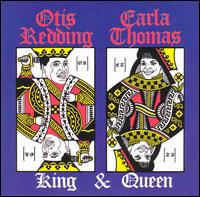
Booker T. & the M.G.'s were an American instrumental R&B/funk band that was influential in shaping the sound of Southern soul and Memphis soul. The original members of the group were Booker T. Jones, Steve Cropper (guitar), Lewie Steinberg (bass), and Al Jackson Jr. (drums). In the 1960s, as members of the Mar-Keys, the rotating slate of musicians that served as the house band of Stax Records, they played on hundreds of recordings by artists including Wilson Pickett, Otis Redding, Bill Withers, Sam & Dave, Carla Thomas, Rufus Thomas, Johnnie Taylor and Albert King. They also released instrumental records under their own name, including the 1962 hit single "Green Onions". As originators of the unique Stax sound, the group was one of the most prolific, respected, and imitated of its era. By the mid-1960s, bands on both sides of the Atlantic were trying to sound like Booker T. & the M.G.'s.

Booker Taliaferro Jones Jr. is an American musician, songwriter, record producer and arranger, best known as the frontman of the band Booker T. & the M.G.'s. He has also worked in the studios with many well-known artists of the 20th and 21st centuries, earning him a Grammy Award for lifetime achievement.
Stax Records is an American record company, originally based in Memphis, Tennessee. Founded in 1957 as Satellite Records, the label changed its name to Stax Records in 1961. It also shared its operations with sister label Volt Records.

Steven Lee Cropper, sometimes known as "The Colonel", is an American guitarist, songwriter and record producer. He is the guitarist of the Stax Records house band, Booker T. & the M.G.'s, which backed artists such as Otis Redding, Sam & Dave, Carla Thomas, Rufus Thomas and Johnnie Taylor. He also acted as the producer of many of these records. He was later a member of the Blues Brothers band. Rolling Stone magazine ranked him 36th on its list of the 100 greatest guitarists of all time, while he has won two Grammy Awards from his seven nominations.

Albert J. Jackson Jr. was an American drummer, producer, and songwriter. He was a founding member of Booker T. & the M.G.'s, a group of session musicians who worked for Stax Records and produced their own instrumentals. Jackson was affectionately dubbed "The Human Timekeeper" for his drumming ability. He was inducted into the Memphis Music Hall of Fame in 2015, and the Rock and Roll Hall of Fame as a member of Booker T. & the M.G.'s in 1992.

Donald "Duck" Dunn was an American bass guitarist, session musician, record producer, and songwriter. Dunn was notable for his 1960s recordings with Booker T. & the M.G.'s and as a session bassist for Stax Records. At Stax, Dunn played on thousands of records, including hits by Otis Redding, Sam & Dave, Rufus Thomas, Carla Thomas, William Bell, Eddie Floyd, Johnnie Taylor, Albert King, Bill Withers, Elvis Presley and many others. In 1992, he was inducted in the Rock and Roll Hall of Fame as a member of Booker T. & the M.G.'s. He is ranked number 40 on Bass Player magazine's list of "The 100 Greatest Bass Players of All Time".

"In the Midnight Hour" is a song originally performed by Wilson Pickett in 1965 and released on his 1965 album of the same name, also appearing on the 1966 album The Exciting Wilson Pickett. The song was composed by Pickett and Steve Cropper at the historic Lorraine Motel in Memphis, later the site of the assassination of Martin Luther King Jr. Pickett's first hit on Atlantic Records, it reached number one on the R&B charts and peaked at number 21 on the pop charts.

Otis Blue/Otis Redding Sings Soul is the third studio album by American soul singer and songwriter Otis Redding. It was first released on September 15, 1965, as an LP record through the Stax Records subsidiary label Volt.

Edward Lee Floyd is an American R&B and soul singer and songwriter, best known for his work on the Stax record label in the 1960s and 1970s, including the No. 1 R&B hit song "Knock on Wood".

Pain in My Heart is the debut album of soul singer-songwriter Otis Redding. Redding recorded for Volt Records, a subsidiary of Stax Records, based in Memphis, Tennessee. Volt LPs were initially issued on the Atco label, which released this album.

The Great Otis Redding Sings Soul Ballads, simply referred to as Soul Ballads or Sings Soul Ballads, is the second studio album by American soul singer-songwriter Otis Redding, released in 1965. The album was one of the first issued by Volt Records, a sub-label of Stax Records, and Redding's first on the new label. Like Redding's debut Pain in My Heart (1964), Soul Ballads features both soul classics and originals written by Redding and other Stax Records recording artists. The recording sessions took place at the Stax studios in Memphis. The album features a stereo mix made by engineer Tom Dowd, replacing the early mono mix.

"I've Been Loving You Too Long" (originally "I've Been Loving You Too Long (To Stop Now)") is a soul music ballad written by Otis Redding and Jerry Butler. Considered by music critics and writers to be one of Redding's finest performances and a soul classic, it is a slow, emotional piece with Redding's pleading vocals backed by producer Steve Cropper's arpeggiated guitar parts and a horn section.

King & Queen is a studio album by American recording artists Otis Redding and Carla Thomas. It is Thomas' fourth album and Redding's sixth and the final studio album before his death on December 10, 1967. Influenced by Marvin Gaye's duets, the album features ten covers of soul classics and the eleventh finishing song co-written by Redding.

"Soul Man" is a 1967 song written and composed by Isaac Hayes and David Porter, first successful as a number 2 hit single by Atlantic Records soul duo Sam & Dave, which consisted of Samuel "Sam" Moore and David "Dave" Prater. In 2019, "Soul Man" was selected for preservation in the National Recording Registry as "culturally, historically, and aesthetically significant" by the Library of Congress. It was No. 463 in "Top 500 Greatest Songs of All Time" by Rolling Stone Magazine in 2010 and No. 458 in 2004.
"That's How Strong My Love Is" is a song written by Roosevelt Jamison and first recorded in 1964 by deep soul singer O. V. Wright.

"I Thank You" is a song written by David Porter and Isaac Hayes originally recorded by Sam & Dave, released in early 1968. The single was Sam & Dave's final release on Stax Records, reaching #9 on the Billboard Pop Singles chart and #4 on the R&B chart. Shortly after its release, Stax severed its distribution deal with Atlantic Records and Sam & Dave, who were actually signed to Atlantic and loaned out to Stax, began recording for Atlantic proper. The song begins with Sam's spoken introduction that goes: "I want everybody to get off your seat,/ And get your arms together,/ And your hands together,/ And give me some of that old soul clapping". First, Sam sings the refrain, plus the first verse, and the refrain, while Dave sings the second verse, the refrain, and the third verse, with both Sam and Dave sharing on the repeated "Thank Yous" portion. Following a brief instrumental, Sam sings the refrain, with Dave, joining him, on the Coda with the repeated "thank yous".

"These Arms of Mine" is a song written by soul musician Otis Redding. Redding was at that time a member of Pat Teacake's Band, consisting of lead guitarist Johnny Jenkins, bassist Pat Teacake and vocalist/songwriter Redding, who also served as driver for Jenkins, who did not have a driver's license. Atlantic Records artist representative Joe Galkin showed interest in Jenkins and proposed to send him to a studio. On the way to a gig, Redding had the opportunity to perform the songs "Hey Hey Baby" and "These Arms of Mine" as Jenkins and house band Booker T. & the M.G.'s ended their sets earlier than scheduled.

Otis Ray Redding Jr. was an American singer and songwriter. He is regarded as one of the greatest singers in the history of American popular music and a seminal artist in soul music and rhythm and blues. Nicknamed the "King of Soul", Redding's style of singing gained inspiration from the gospel music that preceded the genre. His singing style influenced many other soul artists of the 1960s.

Complete & Unbelievable: The Otis Redding Dictionary of Soul, or simply Dictionary of Soul, is the fifth studio album by American soul singer-songwriter Otis Redding and his last solo studio album released before his death. The successful Otis Blue and the following performance at Whisky a Go Go led to his rising fame across the United States. The first side of the album mainly contains cover versions, and the second songs mainly written by Redding.

"(Sittin' On) The Dock of the Bay" is a song co-written by soul singer Otis Redding and guitarist Steve Cropper. It was recorded by Redding twice in 1967, including once just three days before his death in a plane crash on December 10, 1967. The song was released on Stax Records' Volt label in 1968, becoming the first ever posthumous single to top the charts in the US. It reached number 3 on the UK Singles Chart.
















